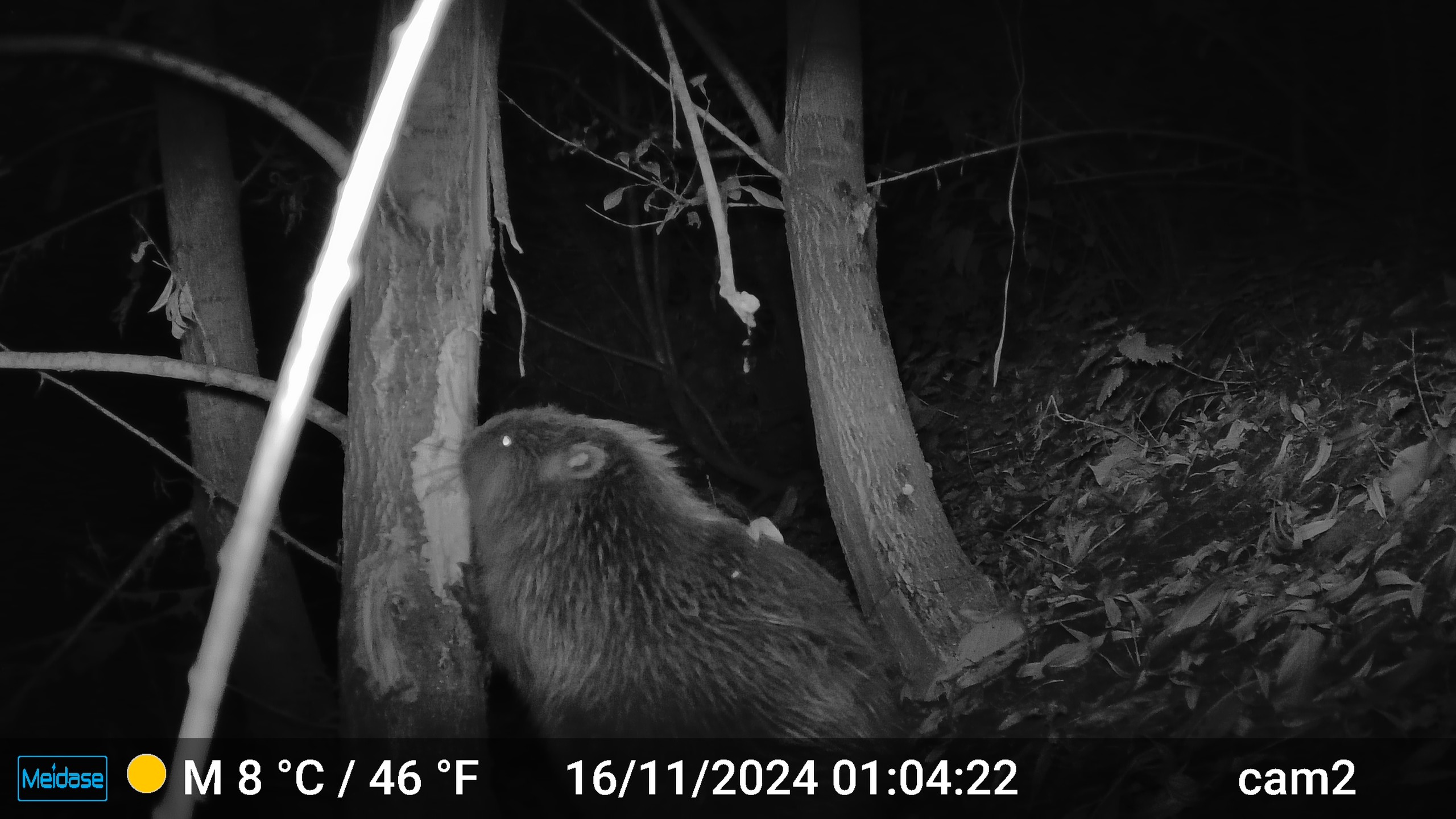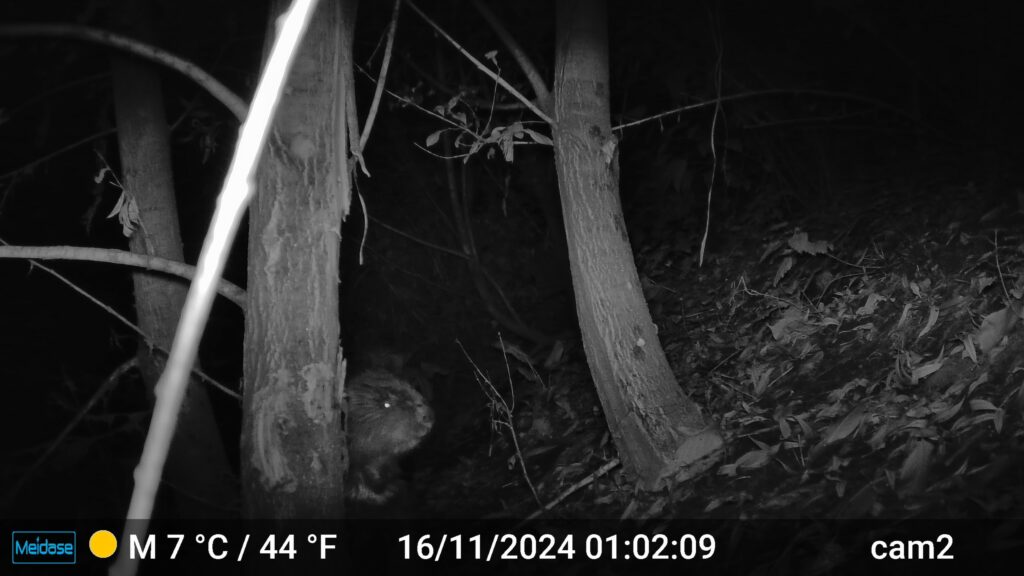A new resident of the Brussels Senne River, part of which was uncovered in 2021, has been spotted. For the first time in some 200 years, a European beaver has made its home here.
In Brussels, the River Senne runs largely underground, including through the city centre. However, parts of it in the north of Brussels have been visible again since 2021. The aim of the river's exposure, led by the Bruxelles Environnement agency, is bearing fruit: nature is gradually reclaiming its rights. This includes a beaver, that has taken up residence on the banks of the Senne, near the Docks Bruxsel shopping centre.
"‘For several months now, we have been seeing tracks on tree trunks and characteristic cuts in trees," said Benjamin Thiebaux, from the ‘Blue Network’ department. As the beaver is mainly active at night, the agency's staff installed automatic infrared cameras at the sites where these traces had been spotted.
"A few days ago, we were finally able to film and photograph the animal," said Thiebaux. "This repeated and regular presence over several months is unprecedented in the capital."

Credit: Brussels Environment
The agency confirmed that the animal is a European beaver, the largest rodent on the European continent.
Disappearance and re-introduction in Belgium
The presence of the creature's ancestors was common throughout Europe until the late Middle Ages, however, beavers disappeared in the 19th century. Their extermination was particularly visible in Belgium, where they were hunted for fur and meat, but also for castoreum. This oily, fragrant substance the animals give off to mark their territory, and is used in perfumes.
Beavers were gradually reintroduced in the 1990s, and the excellent swimmers returned to Belgian rivers. Since then, the species has been expanding rapidly, according to the Brussels agency. "Several thousand individuals have established themselves in our country, including in urban areas. Even the Brussels region now counts at least one ‘established’ specimen."
This is not the only sighting in the Brussels Region. The agency's foresters have also observed traces of beavers in the Sonian forest in recent months, which are believed to be passing through.
The presence of the animals is good news for the region's biodiversity and the health of its ecosystems. "By cutting down trees and creating water reserves to feed and build its lodge and dams, this four-legged engineer can create openings in forests." Sometimes, they can even flood surfaces or create actual ponds, creating wetlands, which is conducive to the development of species such as salamanders, amphibians and dragonflies.
Related News
- One bear killed in fight at Pairi Daiza zoo
- Over 50,000 animals used in scientific tests in Brussels in 2023
To ensure the species does not disappear again, beavers are protected, meaning it is forbidden to kill them or destroy, possess, sell or buy their natural habitat. At the Senne, Bruxelles Environnement's staff is monitoring the beaver's presence and being vigilant about any nuisance its arrival may bring.

